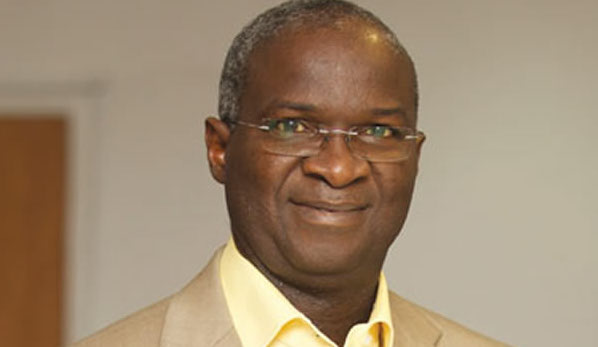Fact Check
FACT CHECK: Fashola claims there’s no housing deficit in Nigeria. True or false?

Claim:
“There is something out there before we came in that Nigeria has housing deficit; it’s a lie” —Babatunde Fashola, Minister of Works and Housing, April 2021.
Conclusion:
False. There is a high housing deficit in Nigeria and not a document from 2012 from the ministry of works and housing as claimed by the minister.
Background:
July 8, 2021 saw the honourable minister of works and housing claiming that there is no housing deficit in Nigeria as widely circulated by experts in the housing industry.
The minister who was speaking at the inauguration of the federal housing Authority said there is no scientific and logical basis to the housing deficit claim.
He said housing problem is an urban problem with people renting houses in the urban centres and having empty houses in the village.
In his words, “There is something out there before we came in that Nigeria has a housing deficit; it’s a lie. Unfortunately, it was a document that originated from this ministry in 2012. It has no scientific basis, nor logical basis; so ignore it.”
Read also: [FACT CHECK]…Did Buhari’s aide, Onochie, dump APC in 2019, and for good?
Verification:
In the Economic and Financial review publication of the Central Bank of Nigeria issued in December 2019, there are two articles with a focus on housing deficit in Nigeria.
The first one retrieved by Ripples Nigeria is titled; Addressing Housing Deficit in Nigeria: Issues, Challenges and Prospects authored by Emmanuel Abolo Moore
In this piece, housing deficits across six African countries from 2016-2019 were compared and Nigeria had the highest with 18-22 million housing unit deficit as at 2019. While other African states in the comparison table did not exceed a 2.5 million housing unit deficit.
This piece also shows the trend of housing deficit in the country and its cause. It shows that as Nigeria’s population increases, the housing deficit also increases. The causes over the years have changed from Mortgage inefficiency, slum demolition, urban migration to over population, urban expansion and Increased poverty. This shows it is not a ministry document from 2012.
Moore said the indication of this high housing deficit is that tenants in rented apartments pay as high as 60 percent of their disposable income which is 20 percent higher than what the United Nations recommended.
The second article authored by Professor Akpan Ekpo, is titled Housing deficit, challenges and prospects. The professor pointed out that real estate has grown 20 percent in asset price but in contribution to Nigeria’s GDP, it has contributed negatively from the first quarter of 2016 until the first quarter of 2019 where it grew to 2 percent.
He also highlighted 11 challenges facing the housing sectors in Nigeria to include;
Land tenure system, high cost of Infrastructure, government bureaucracy, inadequacy of housing information system, taxation, high interest rate and Inflation, Naira devaluation, Rural urban migration, high cost of property development, bribery and corruption and mortgage issues in the sector.
Join the conversation
Support Ripples Nigeria, hold up solutions journalism
Balanced, fearless journalism driven by data comes at huge financial costs.
As a media platform, we hold leadership accountable and will not trade the right to press freedom and free speech for a piece of cake.
If you like what we do, and are ready to uphold solutions journalism, kindly donate to the Ripples Nigeria cause.
Your support would help to ensure that citizens and institutions continue to have free access to credible and reliable information for societal development.
























